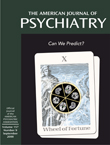The chapters in this edited book are written by experts in specific therapeutic techniques whose goal is to provide insights into human diversity based on the Tomkins-Nathanson theory of affects. The book contains an adjuration for therapists to focus on the patient’s affect, and there is continuous reference to the theory supporting this.
Is affect really neglected by most therapists who have not been indoctrinated in affect theory? Do they focus mostly on the patients’ thoughts rather than feelings? I don’t think so. Most therapists I know are very interested in the affective component of the therapeutic dialogue. The editor states that there has been a rapid evolution in the clinical application of the affect theory of Silvan Tomkins
(1–
4). The reader is further informed that the attention paid to this “rigorous,…complex and demanding theoretical system” is in itself remarkable, and many clinicians have made the journey to enlightenment since the theory was first published. Such understanding of affect theory is presented as essential for those of us who uncomfortably survey our own therapeutic failures. In an informal survey I made of 12 psychiatric friends, however, I found only one colleague (a polymath) who knew about Tomkins’ work.
I could not find any beginning in this book to lead me to understanding Tomkins’ work. The first chapter, “About Emotion,” states that Tomkins disengaged emotion and cognition (I assumed only conceptually; emotion is in mutual embrace with cognition). The chapter author stumbles on some neurophysiology (a statement that the objects in the visual field miniaturized on the retina are transported as images to various areas of the brain, not a common metaphor). Also, perhaps to make Tomkins’ argument easier for the reader, the author discusses human motivation as guided by affect through the tangle of information bombarding the organism—a view held more or less by most mental health professionals I know. My difficulty is not with Tomkins; rather, my problem is with this book, which I hoped would explain Tomkins to me.
I understand that the theory has some neurophysiological base, but I could not find much in the way of explanation of that basis. The Tomkins theory is continuously celebrated as opposed to cognition, and affect, aside from being “responsible for all motivation,” is characterized as making “good things better and bad things worse.” I understand that in the simplest terms—but that does not qualify as a rigorous definition. Are “bad” versus “good” judgments not dependent on judgments derived from an affective/cognitive state? There are other such confusing boggles. The affect versus cognition battle is iterated often and is confusing—who set up that warring dichotomy anyway? I could not find any basic explanation of affect theory, no starting point in the journey toward the promised change of view. “Script” theory appears as part of the book’s title, but the one chapter devoted to the subject is a glossary written by Donald S. Mosher. I found the pages of definitions numbing; not much emerged that gave me an idea of script theory.
Of course I was interested in a theory that promised to illuminate my darkness. I had assumed that I knew what affect is (I use the word synonymously with feeling or emotion), but I was ready to learn, ready for the promised “rigorousness” and the “demanding quality” of the theory. I found myself irritated, not with a theory that challenged previous assumptions, but at this book, promised as a guide but withholding what I needed. I worked at it, thinking the explanation had escaped me during a moment of inattention during an eye blink or yawn.
The final half of the book has a bit more of the bare beginning of information on this theory but nothing to hang your hat on—there is more encouragement to pay attention to affect, but no system is elaborated that is usable. Donald Nathanson finishes the book with a chapter, “Some Closing Thoughts,” which again lauds Tomkins’ theoretical contribution but does little to explicate it.
Perhaps the editor could not tame his authors (the writing is often repetitive; the theme does not advance). This could be a book for those who already know affect theory, or perhaps there is the assumption that all of us know it. Readers should be encouraged to try for themselves—my lack of understanding could stem from my own deficit. It took frustrating effort for me to try to find the book’s center, and I failed to find any coherent explanation of the theory needed by the uninitiated.

